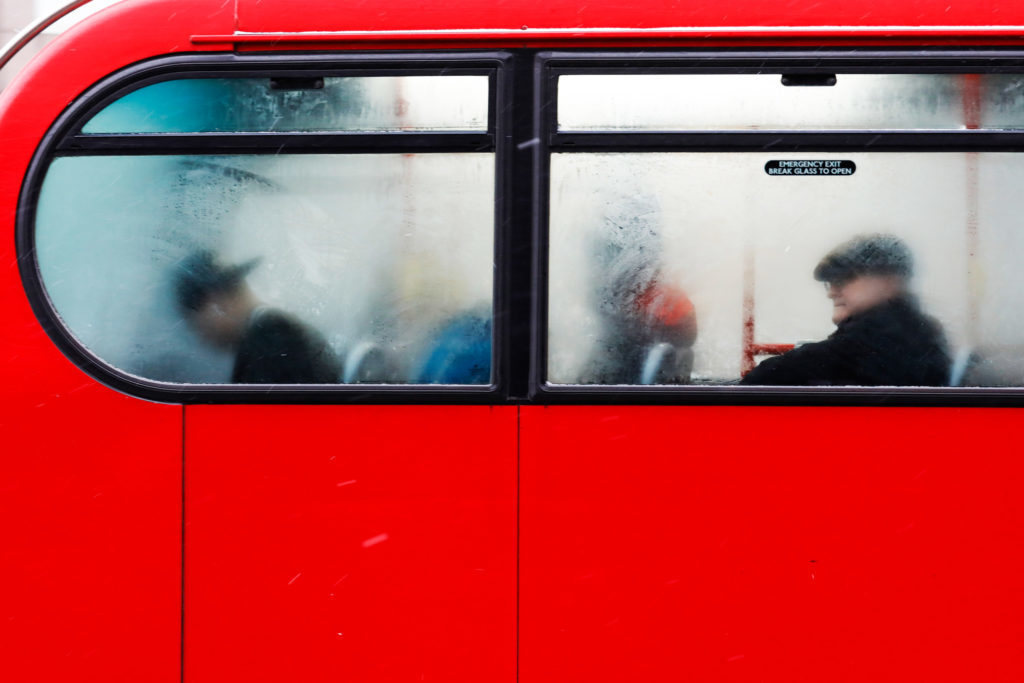
Poor planning and a lack of national resources meant people in the UK were almost 10 times more likely to die from a cold home than a road traffic accident during the cold snap last winter, a report has found.
Energy charities National Energy Action (NEA) and Energy Action Scotland (EAS) said the severe weather caused a huge surge in preventable deaths among the frail and elderly, and left health and social care services “creaking at the seams”.
They said the particularly cold spell between February 28 and March 3, dubbed the Beast from the East, also left thousands of vulnerable households stranded without access to support.
The charities said their research is based on feedback from agencies “on the front line” and they want to use their findings to ensure key lessons can be learned in advance of the coming winter to both save lives and health and care services money.
Dr Jamie-Leigh Ruse, principal author of the report and senior research and policy officer at NEA, said: “In England alone, between 1 January and 31 March 2018, an additional 15,544 deaths occurred.
“Most days in this period saw more deaths than the corresponding day than in any of the previous five years.
“One of the key causes was relevant strategic frameworks for cold weather planning or other key actions to reduce cold related ill-health or deaths were not applied consistently across the UK nations or locally.”
They said this meant people were almost 10 times more likely to die from a cold home than a road traffic accident.
And while other winters have been much milder, on average, there are still approximately 9,700 premature deaths a year due to vulnerable people being unable to heat their homes adequately, if at all.
Dr Ruse added: “Beyond the scale of preventable premature deaths, hospital patients were being discharged before they were ready and without sufficient in-home checks.
“We heard frequent reports of vulnerable people being discharged to homes with no light or heat.
“This is despite national guidance to the contrary and this left many frail patients stuck in a cycle of being admitted to hospital, discharged only to be readmitted as a result of their poor housing conditions.
“With as many as one in 20 hospital admissions likely to follow these trends, no wonder health and care services were left creaking at the seams.”
The report also notes how volunteers and organisations worked round the clock to provide emergency support to low income families and elderly residents.
However, difficulties in getting help to people living in remote areas was common as was limited staff capacity which meant most areas failed to cope with demand for emergency heating, heating repairs, medical services and even food.
EAS director Norman Kerr said: “Whilst it was welcome to see voluntary and community organisations stepping up to provide much needed help and support, in future, we need to learn from this dire experience.
“In Scotland we hope the Government’s winter campaigns such as Ready Scotland will focus much more on preventative measures.
“As well as advice, the Government should provide additional direct support to keep homes warm this coming winter.
“With the publication of the new draft Fuel Poverty Strategy, this is also an opportune time for increased collaboration with health colleagues”.
In Scotland, Northern Ireland and Wales the report calls for the development of comprehensive national Cold Weather Plans similar to that in England produced by Public Heath England (PHE).
Across each nation, the report urges all relevant public health agencies to promote or replicate existing national guidance from the National Institute for Health and Care Excellence (Nice) on how to address excess winter deaths and reduce cold homes.
The report also calls for each nation to do more to facilitate and help fund the delivery of health prevention-based affordable warmth programmes.
In the short-term, the authors said energy suppliers and local authorities can also improve access to adequate emergency credit for pre-payment customers and crisis loans during severe cold weather.
They also highlight fuel providers of oil and LPG can do more to ensure the most vulnerable are not left without access to fuel during extreme cold weather.
Recommended for you
